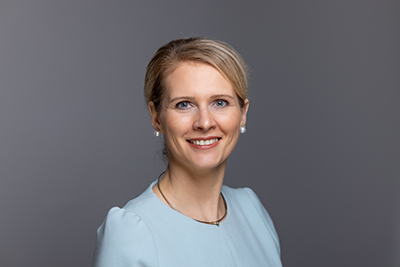Smart Care: Online Consultations Complement In-Person Visits

A conversation with Maria Onyshchenko-Dubow, Deputy Head of the International Medical Services at the Medical Center – University of Freiburg.
Maria, you work with patients from all over the world. When and how did online consultations begin at your clinic?
We started offering online consultations over 15 years ago, and it happened quite naturally. Patients who couldn’t visit in person immediately sought expert advice remotely. Today, the process is straightforward: patients fill out a short form on our website, upload their documents and radiological images directly to the clinic’s server or share a download link, and within a few days, they receive a comprehensive consultation with a professor from Freiburg.
What questions do patients most often ask during these consultations?
The most common questions we receive are, "What would you do if you were in my place?" or "Should I travel to Germany, or can everything be done at home?" People want an independent, professional opinion — whether it’s a second opinion, a review of a treatment plan, or guidance to avoid unnecessary surgery.
Could you share an example?
Recently, a 58-year-old patient named Andrey from Almaty reached out to us. Local doctors had recommended removing his kidney due to a detected tumor, but he wanted to ensure this was his only option. After an online consultation with our urology professor and a thorough review of his CT scans and other medical data, the professor suggested a kidney-sparing surgery that could be performed at our clinic. With a clear understanding of his diagnosis and treatment plan, Andrey traveled to Freiburg, underwent the surgery, and returned home with his kidney function preserved.
When do you still recommend an in-person visit?
There are certain fields where an accurate diagnosis is very difficult without a physical examination — such as ophthalmology, dermatology, and some ENT or neurology cases. In these situations, we might advise: 'Get tested locally first, and then we’ll decide,' or, 'It’s better to come in person since we have all the necessary equipment.' We always start by reviewing the patient’s documents, discussing the case as a team, and then recommending whether the consultation should be online or in-person.
How do you ensure the quality and security of online consultations?
Our primary focus is on the expertise of our doctors. Consultations are conducted by professors and senior specialists from the university hospital, who meticulously review all submitted materials — medical records, lab tests, and imaging such as CT or MRI scans — before the appointment. Additionally, all communication is carried out through secure channels that adhere to stringent European data protection standards.
Are online consultations common? What role will they play in the future of medicine?
Online consultations have seamlessly integrated into modern medicine, much like electronic health records and remote monitoring. They are convenient, effective, and make it possible to connect with experts who were previously difficult to access. However, it’s important to recognize that online consultations are not a replacement but a smart complement to in-person care. Sometimes, they serve as the first step towards treatment at a clinic; other times, they help patients avoid unnecessary travel.
Finally, what advice would you give to patients living abroad who want a consultation with a German doctor?
"Don’t hesitate to reach out. Simply fill out the form on our website, prepare your medical documents, and allow us some time to carefully review everything. The clearer and more complete your information, the more accurate and helpful the doctor’s recommendations will be. We’re here to guide you every step of the way."
If you are interested in an online consultation, please fill out the inquiry form.
Back